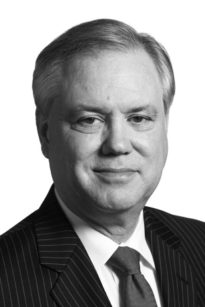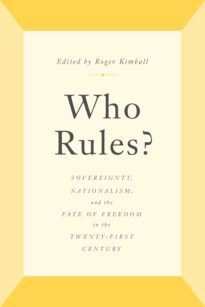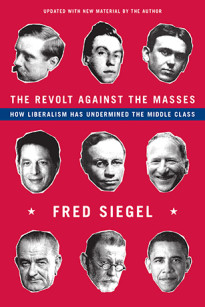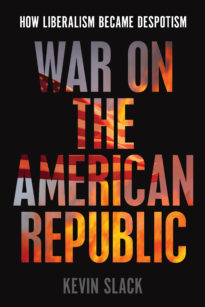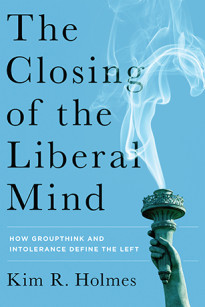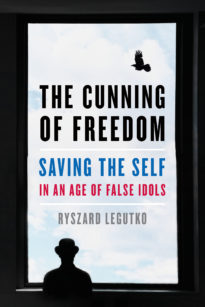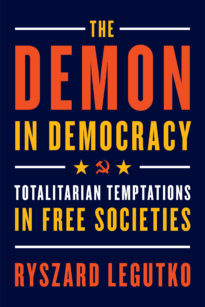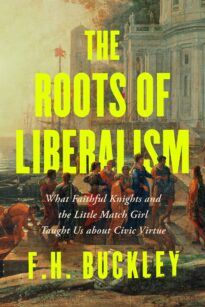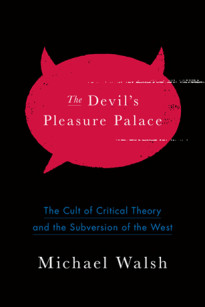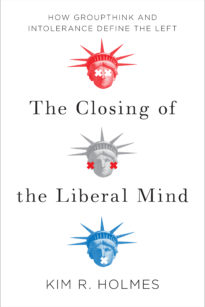A former U.S. Assistant Secretary of State and currently a Distinguished Fellow at The Heritage Foundation, Kim R. Holmes surveys the state of liberalism in America today and finds that it is becoming its opposite—illiberalism—abandoning the precepts of open-mindedness and respect for individual rights, liberties, and the rule of law upon which the country was founded. Instead, liberalism is becoming an intolerant, rigidly dogmatic ideology that abhors dissent and stifles free speech. Tracing the new illiberalism to the radical Enlightenment, a movement that rejected the classic liberal ideas of the moderate Enlightenment that were prominent in the American Founding, Holmes argues that today’s liberalism has forsaken its American roots, incorporating instead the authoritarian, anti-clerical, and anti-capitalist prejudices of the radical and largely European Left. The result is a closing of the American liberal mind. Where once freedom of speech and expression were sacrosanct, today liberalism employs speech codes, trigger warnings, boycotts, and shaming rituals to stifle freedom of thought, expression, and action. It is no longer appropriate to call it liberalism at all; it should be called illiberalism—a set of ideas in politics, government, and popular culture that increasingly reflects authoritarian and even anti-democratic values, and which is devising new strategies of exclusiveness to eliminate certain ideas and people from the political process. Lurking in the radical fringes of the Left, illiberalism has always offered temptations for American liberals, but today it is the dominant ideology in progressive liberal circles. This makes it a new danger not only to the once venerable tradition of liberalism, but to the American nation itself, which needs a viable liberal tradition that pursues social and economic equality while respecting individual liberties.
Free shipping on all orders over $40
The Closing of the Liberal Mind
How Groupthink and Intolerance Define the Left
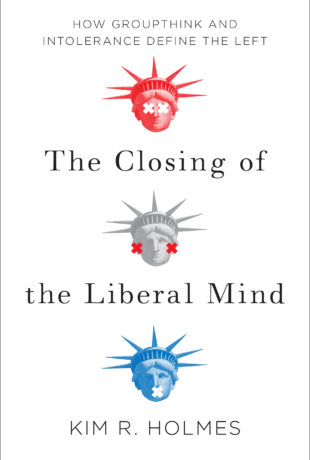
Publication Details
Paperback / 376 pages
ISBN: 9781594039553
AVAILABLE: 12/12/2017
- Media: Request a Review Copy
- Academia: Request an Exam Copy
About the Author
Kim R. Holmes is a Distinguished Fellow and former Vice President of The Heritage Foundation and a former U.S. Assistant Secretary of State. His published works include Rebound: Getting America Back to Great (Rowman & Littlefield, 2013) and Liberty’s Best Hope: American Leadership for the 21st Century (Heritage Foundation, 2007).
Excerpt
When most people think of intolerance, they imagine a racist taunting a black person. Or they think of the white supremacist who killed a demonstrator in Charlottesville, Virginia. It seldom occurs to them that intolerance comes in all political shapes and sizes. A protester storming a stage and refusing to let someone speak is intolerant. So, too, are campus speech codes that restrict freedom of expression. A city official threatening to fine a pastor for declining to marry a gay couple is every bit as intolerant as a right-winger wanting to punish gays with sodomy laws. Intolerance exists on the right and the left. It knows no exclusive political or ideological affiliation. It happens any time someone uses some form of coercion, either through government fiat or public shaming rituals, to restrict open debate and forcefully eliminate opponents from the playing field.
There is a word that describes this mentality. It is illiberal. For centuries, we have associated the word “liberal” with open-mindedness. Liberals were people who were supposed to be tolerant and fair and who wanted to give all sides a hearing. They cared about everyone, not just their own kind. They wanted to include people in the exercise of liberty, not exclude them. They believed in pluralism. By contrast, illiberal people were hardheaded in their opinions and judgmental about others’ behaviors, hoping to control what other people thought and said and to cut off debate. In extreme cases, they would even use violence to maintain political power and exclude certain kinds of people from having a say in their government.
Sadly, the kind of liberalism we used to know is fast disappearing from America. While the intolerance of the far right is well known, its manifestations on the far left are less known and often not fully acknowledged. All too often, people who call themselves progressive liberals are at the forefront of movements to shut down debates on college campuses and to restrict freedom of speech. They are eager to cut corners, bend the Constitution, make up laws through questionable court rulings, and generally abuse the rules and the Constitution in order to get their way. They establish “zero-tolerance” regimes in schools where young boys are suspended for nibbling breakfast pastries into the shape of a gun. They are supposedly great haters of bigotry but sometimes speak of Christians in the most bigoted manner imaginable, as if Christians were no better than fascists. They support laws and regulations that over-criminalize everyday aspects of American life, to the point that people can be fined or imprisoned for violating some environmental or other regulation they did not know existed. They can be neighborhood bullies or petty tyrants on town or county councils, launching campaigns to stop people from building houses they do not like or going after the parents of “free-range children.”
These are not theoretical threats, but actual incidents from recent years. Once known as the quintessential free thinkers, liberal intellectuals today are primarily keepers of a stifling ideological orthodoxy. They have become like mandarin servants of today’s ruling class, presiding, for example, over academic departments teaching hopelessly incoherent subject matter (“queer studies,” anyone?) while eagerly awaiting the next government grant, contract, or invitation to a White House party.
American liberals are, in short, becoming increasingly illiberal. They are surrendering to the temptations of the closed mind.
We must be careful about what this means. There are hard (sometimes very hard) and soft forms of illiberalism that exist regardless of their ideological (left-right) variations. The hard forms are totalitarian or authoritarian. They rely on the threat of force in some measure to maintain power, and they are invariably anti-democratic and anti-liberal. Think of communism, fascism, and all the various hybrids of authoritarian regimes, from Putin’s Russia to Islamist states that support terrorism. Soft forms of illiberalism, on the other hand, are not totalitarian or violent. Outwardly they may observe the limits constitutional democracies place on the arbitrary use of power, but there is a suspicion that liberal democracies are not fully legitimate. For example, nationalists and military regimes see them as weak and corrupt, incapable of maintaining order and protecting national security. On the other side of the political spectrum, leftists often judge liberal democracies as economically and socially unjust because they are capitalist. Since most liberal democracies still allow conservatives to have a voice in the democratic process, leftists find them wanting, and in some cases condemn them outright as inherently oppressive (of racial and sexual minorities, for example), precisely because conservatives still have a voice.
Hard forms of illiberalism certainly exist in America today. On the right they are manifest in the form of hard-core racists and white supremacists, and on the left as communists, anarchists, or any leftist radical who openly threatens violence. But soft illiberalism is present as well, and in America today it is pervasive. Despite all the attention the “alt right” has received in the wake of Donald Trump’s election as President, much of the institutional growth of illiberal intolerance has been over the past decade a left-wing phenomenon.
This brings me to the subject of definitions. Historically, a progressive liberal was someone who imbibed the intellectual nectars of both progressivism and classical liberalism. The progressive tradition is easily recognizable. It is the legacy of such prominent progressives from the turn of the 20th century as Herbert Croly, John Dewey, Teddy Roosevelt, Woodrow Wilson, and others. The classical liberal tradition is less well known, and as a result our understanding of it is murkier. Classical liberalism is a set of ideas about individual liberty and constitutional government inherited from the moderate Enlightenment.3 In America those ideas influenced the Revolution and the founding of the Republic. In Europe they were taken up in the 19th century by such liberals as Benjamin Constant, David Ricardo, Alexis de Tocqueville, François Guizot, and John Stuart Mill.
Although originally swimming in the same intellectual stream, American progressives and classical liberals started parting company in the late 19th century. Progressives initially clung to freedom of expression and the right to dissent from the original liberalism, but under the influence of socialism and social democracy they gradually moved leftward. Today they largely hold classic liberalism—especially as manifested in small-government conservatism and libertarianism—in contempt. Thus, what we call a “liberal” today is not historically a liberal at all but a progressive social democrat, someone who clings to the old liberal notion of individual liberty when it is convenient (as in supporting abortion or decrying the “national security” state), but who more often finds individual liberties and freedom of conscience to be barriers to building the progressive welfare state.
